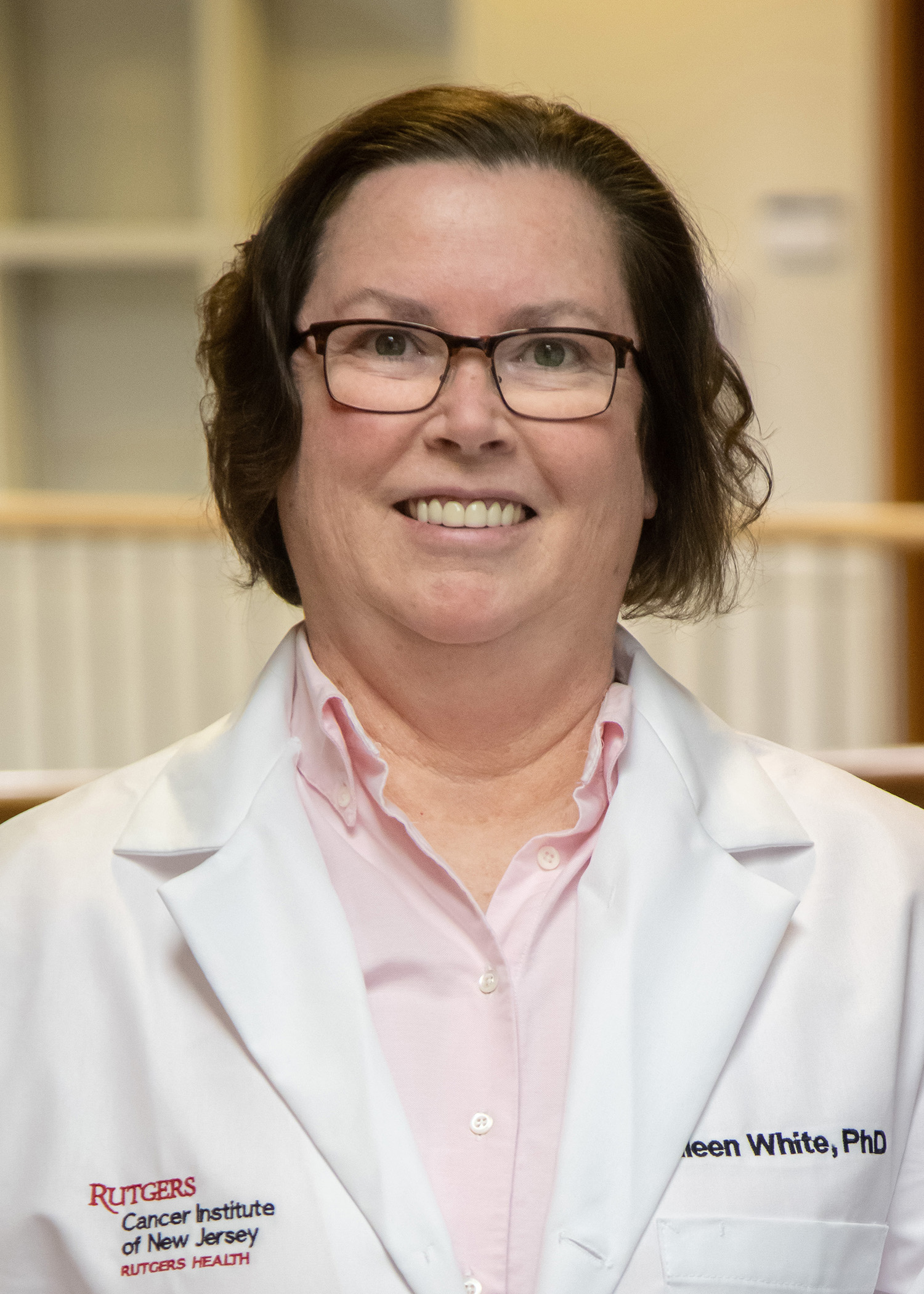 Biosketch Statement
Biosketch Statement
Eileen White, PhD, is a cancer biologist known for her work establishing that a DNA tumor virus oncogene functions by inhibiting programmed cell death by apoptosis and is a homologue of the human BCL-2 oncogene. She is also known for establishing that tumor cells induce intracellular nutrient scavenging by autophagy, which promotes their metabolism, growth, survival, and malignancy. These findings informed the means to target the apoptosis and autophagy pathways for cancer therapy. Eileen is Deputy Director and Chief Scientific Officer at the Rutgers Cancer Institute at Rutgers University, and Associate Director of the Ludwig Princeton Branch of the Ludwig Institute for Cancer Research at Princeton University. She is also the Lead PI for the Cancer Research United Kingdom/United States National Cancer Institute Cancer Grand Challenge grant to address the mechanisms causing cancer cachexia through the Cancer Cachexia Action Network (Team CANCAN). Amongst Eileen’s honors are election to the US National Academy of Sciences and the American Academy of Arts and Sciences, and she is an elected fellow of the American Association for the Advancement of Science, the American Academy of Microbiology, and the American Association for Cancer Research Academy.
Research Interest Statement
Eileen White’s laboratory focuses on identifying mechanisms required for tumor cells and tumors to survive, proliferate, and evade surveillance by the immune system. The overall goal is to reveal novel approaches for cancer therapy. By studying how an oncogene encoded by the DNA tumor virus adenovirus promotes oncogenesis they established that it encoded a viral homologue of the human BCL-2 oncoprotein that blocked apoptosis by binding and inhibiting pro-apoptotic BCL-2 protein family members. These findings contributed to the intellectual leap that evading apoptosis was one of the hallmarks of cancer. By examining how tumor cells survive nutrient deprivation they discovered that they do so by upregulating intracellular nutrient scavenging by autophagy to recycle macromolecules into metabolic pathways. They went on to establish that autophagy in the host sustains levels of the amino acid arginine in the circulation, which is essential for tumor growth. By examining how autophagy controls the immune response they discovered that autophagy suppresses inflammation, thereby limiting an anti-tumor T-cell response that enables tumor growth. Collectively, these findings delineated novel tumor cell autonomous and host metabolic functions maintained by autophagy critical for tumor growth, and the means by which autophagy prevents tumor elimination by the immune system.

